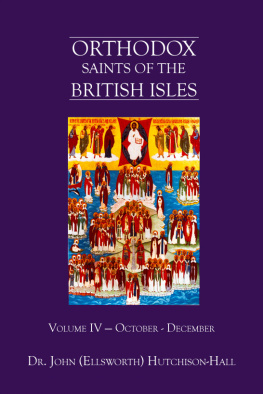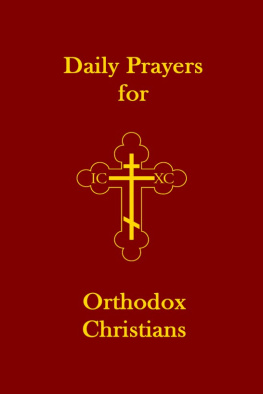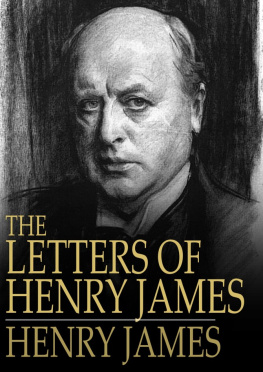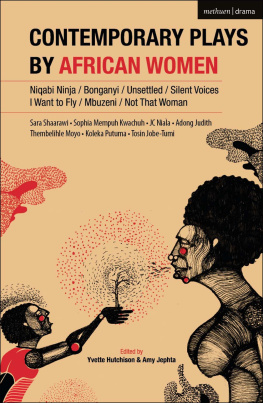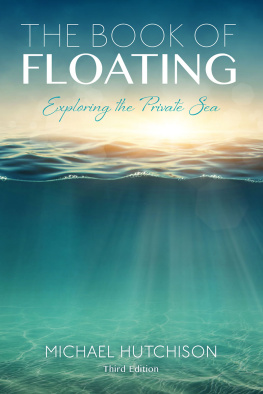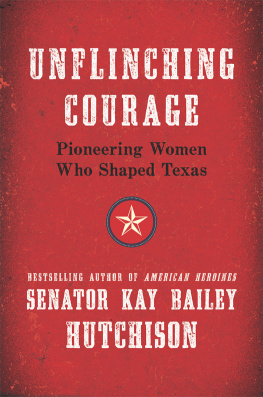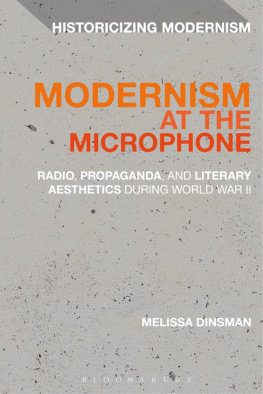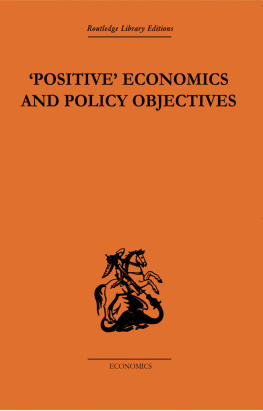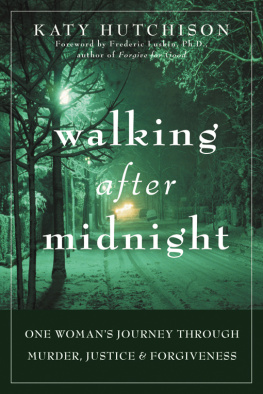The War That Used Up Words
The War That Used Up Words
American Writers and the First World War
Hazel Hutchison

Published with assistance from the Mary Cady Tew Memorial Fund.
Copyright 2015 by Hazel Hutchison.
All rights reserved.
This book may not be reproduced, in whole or in part, including illustrations,
in any form (beyond that copying permitted by Sections 107 and 108 of the
U.S. Copyright Law and except by reviewers for the public press), without written
permission from the publishers.
Yale University Press books may be purchased in quantity for educational, business,
or promotional use. For information, please e-mail (U.S. office)
or (U.K. office).
Set in Bulmer type by Westchester Book Group, Danbury, Connecticut.
Printed in the United States of America.
Library of Congress Cataloging-in-Publication Data
Hutchison, Hazel.
The war that used up words : American writers and the first world war / Hazel Hutchison.
pages cm
Includes bibliographical references and index.
ISBN 978-0-300-19502-6 (hardback)
1. American literature20th centuryHistory and criticism. 2. World War, 19141918United StatesLiterature and the war. I. Title.
PS228.W37H88 2015
810.9358dc23
2014032474
A catalogue record for this book is available from the British Library.
This paper meets the requirements of ANSI/NISO Z39.48-1992 (Permanence of Paper).
10 9 8 7 6 5 4 3 2 1
In memory of my grandfather
William Craig Eadie
18921982 who served in the
Royal Army Medical Corps, 19141919
Contents
ONE
1914Civilization
TWO
1915Volunteers
THREE
1916Books
FOUR
1917Perspectives
FIVE
1918Compromises
Acknowledgments
In 2001, as a raw, new teaching fellow at the University of Aberdeen, I was given the task of writing a lecture on First World War poetry for a course on writing and gender. I was already having an absurdly busy year, and I knew almost nothing about war poetry. I remember thinking that this could turn out to be a lot of work. How right I was. A dozen years on, however, I am very grateful to Jeannette King and Flora Alexander for conspiring to set me to work on this subject. Without the groundwork done for that lecture, and the discovery of poems by Mary Borden and Grace Fallow Norton, which instantly caught my imagination, this book would never have happened.
Since then, I have read and traveled widely, and have incurred many debts to individuals and institutions that have facilitated access to print and manuscript sources. I would like to thank: the Beinecke Library, Yale University; Boston Public Library; Cambridge University Library; the Carnegie Trust; the Center for Henry James Studies at Creighton University, especially Katie Sommer and Greg Zacharias; Churchill College Archives, University of Cambridge, especially Sophie Bridges; Jane Conway; Duff Hart-Davis; the Houghton Library, Harvard University, especially Susan Halpert; the Howard Gotleib Archival Research Center, Boston University; the James Graham Leyburn Library, Washington and Lee University, especially Vaughn Stanley; Kings College Archives, University of Cambridge; the National Library of Scotland; the Special Collections Centre, University of Aberdeen; the United States National Archives and Records Administration; University of Chicago Archives. Ellen Weiss is due special thanks for her hospitality and generous sharing of unpublished family papers.
Many friends and contacts offered wisdom and encouragement, corrected stray facts, or pointed me in the direction of new material: Mairi Brunning, Pat Carter, Santanu Das, Alison Fell, Tamara Follini, Christine Hallett, Margaret Higonnet, Philip Horne, Tim Kendall, Tim Lustig, Angela K. Smith, Mark Van Wienen, and Mark Whalan. Eric Brandt at Yale University Press offered excellent advice. Christine Hallett, David Hutchison, Jeannette King, and Mhairi Pooler all read sections of the manuscript and gave very useful feedback. I am grateful to all.
Finally, and most importantly, thanks to my familyDavid, Carrie, Jamie, and Fraserwho kept their patience with this project, even when I occasionally lost mine.
Certain passages of this book are also published elsewhere, though in very different form, and appear here by permission. Such passages can be found in: The Art of Living Inward: Henry James on Rupert Brooke, Henry James Review 29, no. 2 (2008): 13243; A Period in Limbo: Placing People and Punctuation in E. E. Cummings The Enormous Room, in War and Displacement, edited by Sandra Barkhof and Angela K. Smith (London: Routledge, 2014), 13448; The Theatre of Pain: Observing Mary Borden in The Forbidden Zone, in First World War Nursing: New Perspectives, edited by Alison Fell and Christine Hallett (London: Routledge, 2013), 13955.
The poems and photograph of Grace Fallow Norton appear by permission of Ellen Weiss. Correspondence between Grace Fallow Norton and Ferris Greenslet at Houghton Mifflin appears by permission of the Houghton Library. The photograph of Henry James appears by permission of Smith College Archives. Quotations from the poems of Mary Borden appear by permission of Patrick Aylmer.
Introduction
DURING THE FIRST WORLD WAR, the American novelist Mary Borden ran a military hospital for the French army. In the summer of 1916, she was posted, at her own request, with a medical team to Bray-sur-Somme to support the British and French offensive taking place nearby. The wooden sheds which housed the operating theater and recovery wards were set up in a shallow valley between chalky hills which had been shelled into mud. Here they were supposedly sheltered from the view of the enemy, but when Borden climbed the slope, the landscape of the war zone opened out dramatically before her:
From the top of the hill I looked down on the beautiful, the gorgeous, the super-human and monstrous landscape of the superb exulting war.
There were no trees anywhere, nor any grasses or green thickets, nor any birds singing, nor any whisper or flutter of any little busy creatures.
There was no shelter for field mice or rabbits, squirrels, or men.
The earth was naked and on its naked body crawled things of iron.
It was evening. The long valley was bathed in blue shadow and through the shadow, as if swimming, I saw the iron armies moving.
The opening of Bordens poem The Hill, first published in 1917, voices a number of powerful contradictions. The scenery of the Western Front is brutal and yet compelling. It is stripped of all natural solace, and yet remains strangely beautiful. It is crowded with marching armies and roaring machines, and yet is lonely and silent. This is a world in which speech is redundant, and yet the writer bears witness to it in words. Bordens language operates through paradox and contrast: the animal is juxtaposed with the human, the organic with the mechanical, the monstrous with the gorgeous. These conflicting elements, however, should come as no surprise. From its opening weeks, the First World War was a war of contradictions. Fought in defense of idealism and civilization, it quickly became the most incoherent and inhumane war in history. Supposedly about freedom, it was sustained by mass conscription and the suppression of free speech. These incompatibilities surface in the literature of the war, which is in itself something of a contradictionthe superb made out of the monstrous. There are also deep inconsistencies in our consumption of such texts. Generations of readers have approached the literature of the First World War through a series of illogicalities. We assert the futility of mass violence, but we sense that we are touching something profoundly human when we read about it. We refute militarism, but we privilege the combatants point of view. We hanker after immediacy and authenticity in accounts of the war, but we gravitate toward texts composed with hindsight, free from the ideological confusion and personal indecision of wartime. We insist on the centrality of the war as a defining historical event, but we dismiss those texts which engage too closely with politics as propaganda. We validate artistry, style, and a dispassionate command of form, but we want to be told the truth. Its seems that writing, or even reading, about the First World War is (pardon the expression) something of a minefield.
Next page

